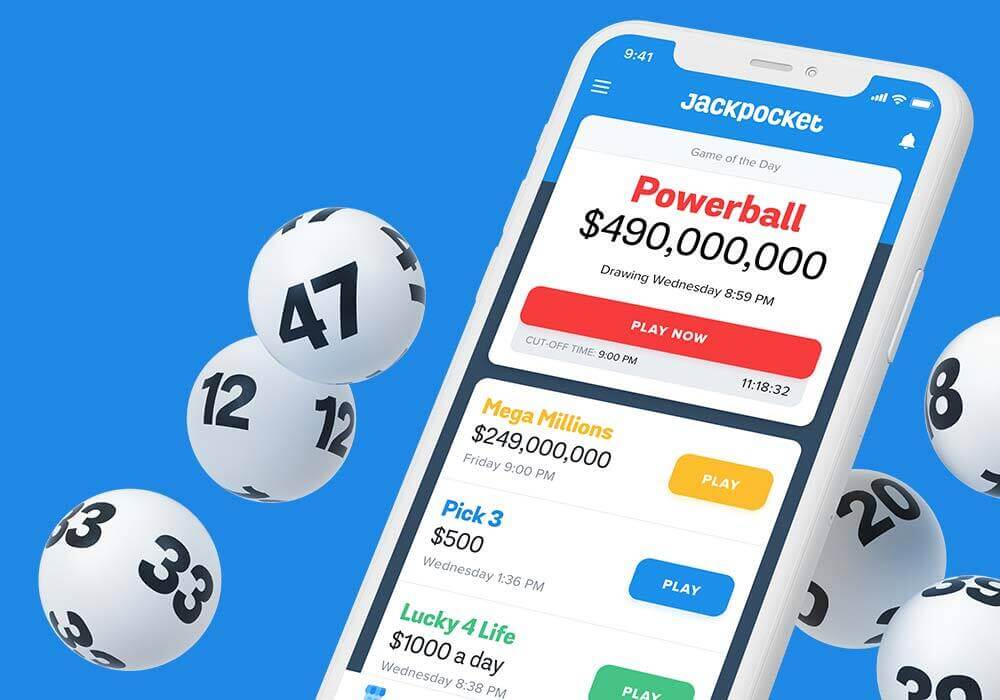So, you’re the lucky winner with a golden lottery ticket. One big question remains before the prize money can hit the bank—lottery lump sum vs annuity? Should you accept the cash value of your winnings or go with the annuity option? This guide will help you decide, but first, let’s take a look at what each payout means.
Lottery payouts
Lottery lump sum vs annuity? What’s the difference?
Here’s a pretty straightforward definition of lottery annuity vs lump sum: a lump sum lottery payout is a one-time cash payment, whereas an annuity payout provides annual payments over time.
Depending on which state you win in and what lottery game you win, the payout options will vary. Some lottery games do not offer an annuity option with the grand prize, so then there’s no question: cash it is!
But for lottery games like Powerball or Mega Millions, a decision will need to be made when you discover you’re holding the winning ticket.
Will you pick lottery cash or annuity? Powerball offers winners a lump-sum payout or an annuity option where the payout would be distributed over the course of 29 years and 30 payments.
The Mega Millions also offers lump sum payouts and annuities. However, the distribution of the annuity is slightly different. With a Mega Millions annuity, you are offered the initial payment upon winning, and then the remaining balance will be paid out over 29 years, with each payment increasing by five percent yearly.
Which is better? When it comes to lottery lump sum vs annuity, there is no right or wrong answer here. It is really a matter of preference and spending habits.
We’ve outlined the lottery annuity vs lump sum pros and cons below to help lucky winners make a more informed decision.
Important note: We want to remind you that we at Jackpocket are not tax professionals. For the official word on lottery winnings and your federal and state taxes, double check the gambling income rules laid out at IRS.gov, your state taxing authority and contact a CPA or tax attorney.
Choosing the annuity option
Annuity pros:
-
Consistent income: Taking home the annuity option guarantees that you will have a consistent stream of income for the next 30 years, meaning it is easier to manage your winnings and not blow them all at once. Depending on annual tax rates, you may end up with more money over time. You will be eligible for the entire grand prize instead of the cash equivalent, so if tax rates don’t climb significantly, it’s possible that on the whole length of the annuity, you will receive more money by the time the annuity obligation is complete.
-
The guilt-free option: Winning the lottery typically comes with some associated expectations from friends and family in terms of being given a portion of the pot. With the annuity payment option, the pressure to offer handouts is not as likely, given that the initial and subsequent payouts will be of a smaller quantity than the full payout.
-
Guaranteed self-control: Not everyone possesses the same amount of self-control when it comes to spending habits and it's not uncommon for lottery winners to run through their winnings within a few years. Annuity payments offer winners the assurance that they won’t spend all their lottery winnings at once.
Annuity cons:
-
Fluctuating taxes: While tax rates may be low when you accept the annuity, there's no crystal ball that can predict the future of the economy. Tax rates could increase exponentially over the course of your payout, meaning your ultimate payout would be much lower than if you accepted the lump sum. It is important to assess the implications taxes could have on your winnings.
-
Unforeseen circumstances: 30 years is a significant amount of time, and there are unexpected issues that could arise over the course of your payout period. The entity issuing the yearly payments could run out of money, or you could pass away before you receive the full funds. In the case of a lottery winner's death, the remaining payments are transferred to the winners estate and distributed according to the named beneficiaries in the estate.
Choosing the lump sum
Lump sum pros:
-
Opportunity for growth: In line with the advice of many financial advisors, a major advantage of taking the lump sum is being able to reinvest the money and, therefore, grow it into a larger sum than you otherwise might with the annuity option. This could factor into your long-term investment strategy.
-
Potentially lower tax rate: Depending on the current tax rate, accepting the lump sum payment could make more financial sense. If tax rates are low, it may be the smarter option to take the lump-sum rather than risking potentially rising tax rates over the course of an annuity payout. The dollar amount of what you owe in taxes on a lump sum might make your heart skip a beat, but it could be potentially lower than what you would owe the government in the form of tax payments over 30 years, especially if the tax rate increases over time.
-
Benefits for inheritance recipients: Accepting the lump sum also has tax implications for the winner's estate planning. If a winner is on the older side, a lump sum payout offers an advantage to whoever may be inheriting their wealth should the winner pass. According to Jason Kurland, a Uniondale, N.Y.-based attorney who has counseled large-jackpot winners, “If a winner dies while receiving the annuity payments, their estate could be hit with a huge tax that it can’t afford,” he said. “The tax will be similar for a lump-sum winner, but at least the money will be there to pay it. An estate may not have the luxury of waiting for the annuity payments in order to pay the tax. There have been instances where this actually bankrupted an estate for a winner who chose the annuity payments.”
Lump sum cons:
-
Maintaining self-control: As we mentioned before, it's not uncommon for self-control to fade away when a huuuuuge lump sum hits your bank account. The potential for spending all of the winnings within the first few years following the payout is one of the main cons associated with the lump-sum payout. Lottery winners may face unforeseen challenges in managing their newfound wealth.
-
Close-circle payouts: Is there such a thing as winner's guilt? It's common (and admirable!) to want to share your lottery winnings with friends and family, but it's also true that hitting it big can create pressure to share the wealth with family, close friends, and not-so-close friends. By accepting the lump sum, you have a larger pot to share than by accepting the annuity option, which can cause a winner’s close circle to have certain expectations around receiving a piece of the pie—not to mention strong opinions about what you should do with the money.
How to protect your lottery payout
Whether you choose the lump sum or annuity option for your lottery winnings, the first recommendation is to assemble an advisory team. This will cost you some of your winnings, but the advice you will receive is well worth the investment. You may want all of these or some combination, but here is who you need to consider to help you protect your lottery payout.
- An accountant: Before deciding on annuity vs lump sum in the lottery, hire an accountant. An accountant will help you track your winnings, help you understand the tax liabilities of each payout option, and inform you about how the decisions you make about what to do with your winnings will impact you come tax time.
- A lawyer: When considering a lawyer, consider one who specializes in estate planning or lottery winnings. They can help you determine how to best protect your winnings or to have something to leave to your heirs when the time comes (which we hope is a long time from now!)
- A financial planner or wealth management advisor: An advisor will help you to plan for the future. They help you protect your winnings by investing them for you so you can make the large sum of money you won grow into an even larger sum. When you make money, they make money, so they will work hard to invest your money appropriately. If this concerns you, look into a financial advisor who is also a fiduciary. A fiduciary has a legal obligation to work in your best interest and focus more on you and less on the company’s interest.
Guide: What do to do if you win the lottery
Is it possible to increase your Powerball grand prize odds?
The odds of winning remain the same, no matter how you play or how often. While there aren’t any guaranteed strategies to increase your Powerball odds of winning, you can consider covering more numbers. A lottery pool can be a good way to join forces with other lottery participants without getting more tickets.
Where does lottery revenue go?
Lottery revenue is divided up in several different ways. Each state has different ways of spending lottery revenue. In most states, the majority of revenue goes to winners in the form of prizes. Certain programs in each state are funded through lottery revenue. What programs are funded depends on the state, but these include: education, helping veterans, and assisting the homeless, among others. See your local lottery website to find out where lottery money goes in your state or visit our state-by-state guide.
Whether you choose lump sum or annuity—congratulations! You're living the dream. 😎




